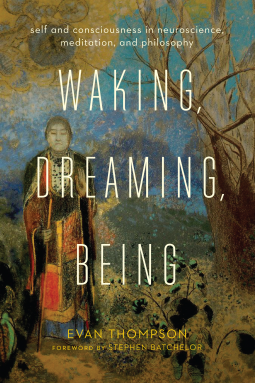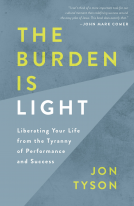
Waking, Dreaming, Being
Self and Consciousness in Neuroscience, Meditation, and Philosophy
by Evan Thompson
This title was previously available on NetGalley and is now archived.
Send NetGalley books directly to your Kindle or Kindle app
1
To read on a Kindle or Kindle app, please add kindle@netgalley.com as an approved email address to receive files in your Amazon account. Click here for step-by-step instructions.
2
Also find your Kindle email address within your Amazon account, and enter it here.
Pub Date Nov 11 2014 | Archive Date Feb 16 2015
Description
A renowned philosopher of the mind, also known for his groundbreaking work on Buddhism and cognitive science, Evan Thompson combines the latest neuroscience research on sleep, dreaming, and meditation with Indian and Western philosophy of the mind, casting new light on the self and its relation to the brain.
Thompson shows how the self is a changing process, not a static thing. When we are awake we identify with our body, but if we let our mind wander or daydream, we project a mentally imagined self into the remembered past or anticipated future. As we fall asleep, the impression of being a bounded self distinct from the world dissolves, but the self reappears in the dream state. If we have a lucid dream, we no longer identify only with the self within the dream. Our sense of self now includes our dreaming self, the "I" as dreamer. Finally, as we meditate -- either in the waking state or in a lucid dream -- we can observe whatever images or thoughts arise and how we tend to identify with them as "me." We can also experience sheer awareness itself, distinct from the changing contents that make up our image of the self.
Contemplative traditions say that we can learn to let go of the self, so that when we die we can witness the dissolution of the self with equanimity. Thompson weaves together neuroscience, philosophy, and personal narrative to depict these transformations, adding uncommon depth to life's profound questions. Contemplative experience comes to illuminate scientific findings, and scientific evidence enriches the vast knowledge acquired by contemplatives.
Advance Praise
“In a game-changing book that is both an intellectual tour-de-force and the courageous statement of a life’s ideal, Evan Thompson brilliantly demonstrates how Indian philosophical thought can join forces with the neurosciences to create a new science of the conscious mind. A must-read for anyone who believes that the future of philosophy is cross-cultural.”
—Jonardon Ganeri, Professor of Philosophy, University of Sussex and Professorial Research Associate,
School of Oriental and African Studies
“An extraordinary tour of the burgeoning body of science and scholarship relating consciousness, the brain, and first‐person contemplative phenomenology. Written in a lively, very engaging, and accessible style, Waking, Dreaming, Being makes clear both the relevance and relationship of current contemplative neuroscience and neurophenomenology to core questions in the philosophy of mind.”
—Alfred W. Kaszniak, Professor of Psychology, Neurology, and Psychiatry, And Evelyn F. McKnight Brain Institute, University of Arizona
“Evan Thompson has been at the forefront of the fields of philosophy of mind and cognitive science for the past two decades, and his technical competence extends to Asian philosophy as well. Waking, Dreaming, Being ventures down paths that many “serious scholars” fear to tread, dealing not only with traditional epistemological puzzles posed by dreaming and dreamless sleep, but also with near death experiences and other extraordinary states that are often ignored in the academy. Thompson covers a tremendous amount of ground in this volume, and his analysis is informed by an interdisciplinary breadth that is second to none.”
—Robert H. Sharf, D. H. Chen Distinguished Professor, and Director of the Center for Buddhist Studies, University of California, Berkeley
“Waking, Dreaming, Being is the kind of sophisticated, yet still extremely incredibly accessible, treatment of consciousness we have been waiting for. Just what does it mean to be human, to have this range of experience, and what are various ways we can use, indeed must use, to investigate this? This book pushes us to think beyond our entrenched conceptual boundaries, not with vague arguments or wishful thinking but with equal doses of logical rigor and phenomenological empathy.”
—William S. Waldron, Middlebury College
Available Editions
| EDITION | Hardcover |
| ISBN | 9780231137096 |
| PRICE | $32.95 (USD) |









